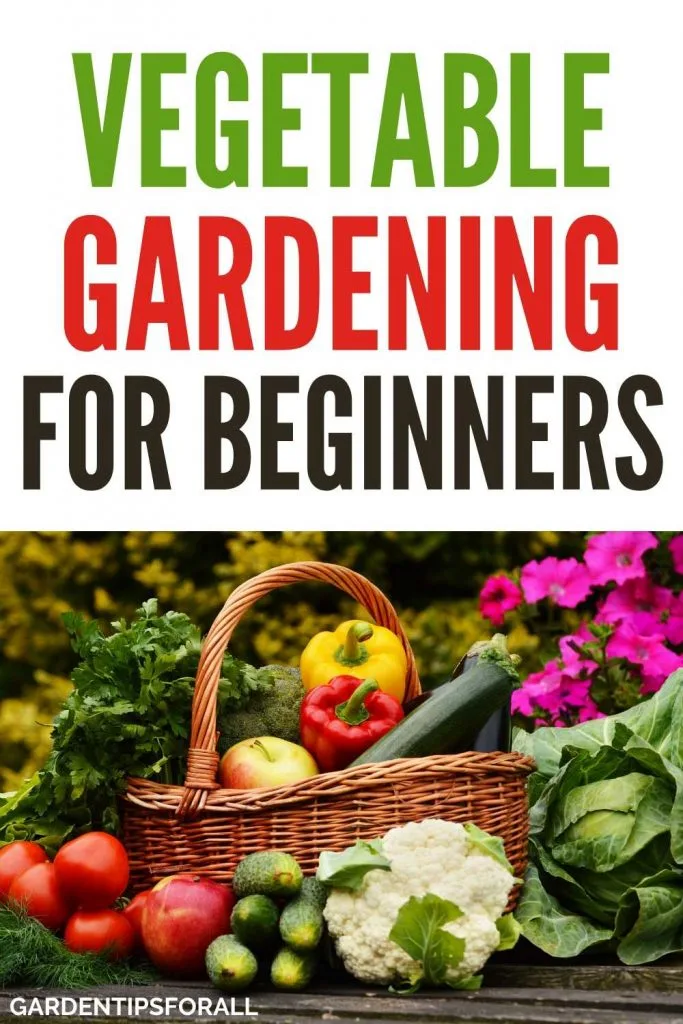Vegetable Gardening for Beginners – A Simple Guide
You will find these tips on vegetable gardening for beginners quite helpful if you are a beginner gardener and are looking to start your own garden.
Starting a vegetable garden is a great first step in beginning to grow your own food, (which is one of the benefits of gardening as a hobby) and even start on the homesteading process.
While many people tend to shy away from gardening, starting a vegetable garden is actually a great activity for beginners to dive right into.

There are so many benefits from being able to plant and watch your seeds grow that it can actually go quite further than “just” putting food on your table.
Gardening can also relieve stress and anxiety as well and if you have children, you’re teaching them that they can grow their own food and be resourceful as well.
Below you’ll find some great tips on how to start vegetable gardening for beginners.
As with anything in life, educating yourself and jumping in to get started is the key!
Related Articles:
- 8 Best Vegetables to Sow in April
- What Vegetables Can You Grow in a 5 Gallon Bucket?
- Vegetables and Herbs You Can Plant in the Fall
What are the Steps to Planting a Vegetable Garden?
The good news is, planting a garden doesn’t have to be overwhelming. The other good news? You can start the process with just a few simple steps.
Before doing anything, you need to make certain that you’ve chosen a spot that gets a good deal of sunlight as well as an area where the water isn’t going to pool up or puddle. (While your garden needs water, too much water is actually a bad thing!)
Once you have that area chosen and secured, it’s time to figure out the soil situation as well.
This means that you can either dig or till your own garden or you can purchase a raised bed and fill it full of soil that you can purchase from the store. (Testing your soil can also be a big indicator of what you’re going to need to add to your soil so it’s ready to plant. These kits can be bought at the store.)
Once you have those two important first steps done, it’s time to take the plunge and figure out what vegetable seeds you’re going to plant!
What Vegetables Should Not be Planted Together?
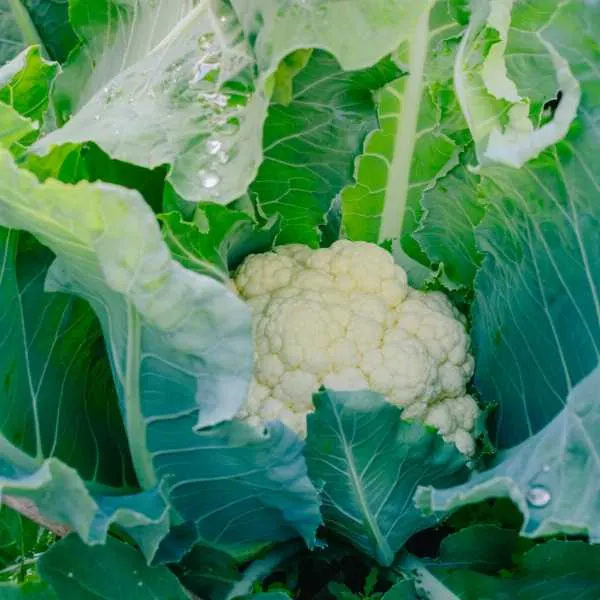
Did you know that not all vegetables are meant to be planted together? Who would have thought, right?
There are actually certain vegetable seeds that just don’t grow well with others.
So before you just order a bunch to plants, you need to know what is going to grow well together so that you can set your garden up for success.
While you’ll need to do your research to educate yourself on all the vegetables that shouldn’t be planted together, here are a few to see right off the bat:
- Cauliflower & Cabbage
- Peas and other beans
- Potatoes and most other vegetables
And these are just a few. Now, keep in mind that if you’re using separate raised garden beds, just plant them in different sections and you’ll be just fine.
These vegetables just shouldn’t be grown in close proximity to each other but with enough space, they should be fine to grow and survive.
What Vegetables Grow in 30 days?
Starting a vegetable garden from scratch is a lot of work, especially for beginners. If you’re needing a quick win, there are some plants that you can plant in your garden that will actually sprout and grow fairly quickly.
For easy vegetables with quick growth, consider planting these vegetables in your garden:
- Radishes
- Lettuce
- Beets
- Spinach
For the most part, the vegetables listed above have the ability to grow and be ready within a 30-day time frame. What this means for you is that you can potentially have fresh veggies from your garden in less than a month – or right at it.
What is the Easiest Crop to Grow?
Break it down even further and plant your garden full of easy vegetables. One of the easiest vegetables that you can possibly is beans but sweet potatoes are a close second as well.
As long as you’re planting vegetables that you’re going to eat, you’re going to find that vegetables don’t have to be difficult at all to grow.
Vegetable Gardening for Beginners
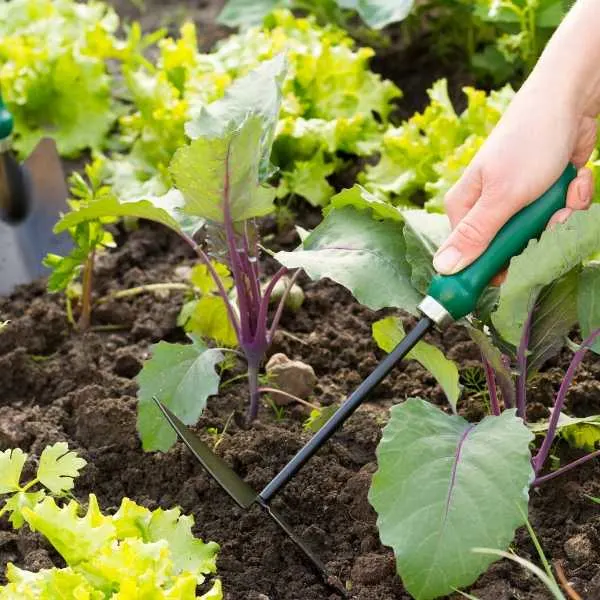
Now that you know some of the most common questions that people have about starting a vegetable garden, let’s dive a little bit deeper into a few of the steps so that you can rest easy knowing that you’ve done everything you can to set your garden up for success.
Having a process to follow is a good idea and means that you’re starting your vegetable garden with a solid foundation for future growth, too.
After you choose a planting spot for your garden and prepare your soil (as mentioned above) it’s time to take the next steps to plant.
Check the Planting Dates for Your Region
Yes, this is true. There are actually times of the year for your specific region that are good for planting. This is because of Mother Nature and her effect on the temperature of the soil.
If the soil is too cold, the seeds are not going to properly grow.
This information can easily be found on the back of the seed packets or even by searching online.
Also, make certain that you’re choosing vegetable seeds to plant that are in your geographical region, too.
Don’t fill your garden area with vegetable seeds that have no chance of growing in the area where you live.
Plant Your Vegetable Seeds According to the Directions
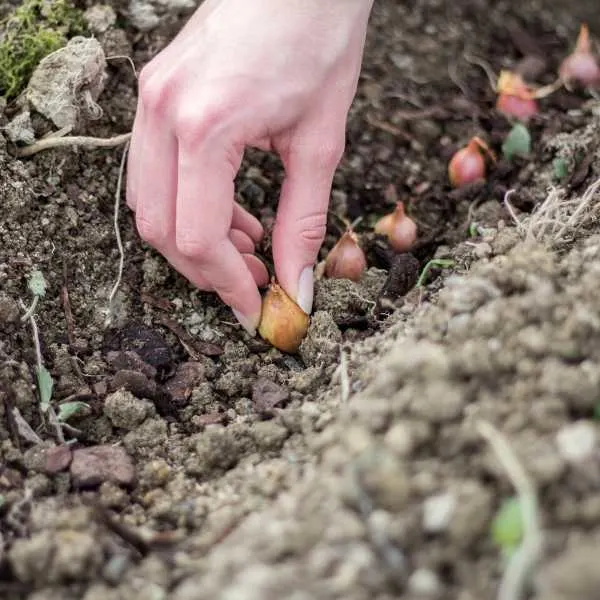
The back of your vegetable seed packet is really handy! It gives you tons of useful information that is a great guide for following.
Not only does it give you a time frame for planting your seeds but it also tells you how deep to plant them and how far apart they need to be as well.
This is a simple process to read and implement without worry.
Once Your Seeds are Planted, Keep them Hydrated
As long as you’ve prepped your soil well, the only other major thing (besides sunlight) that your vegetable garden needs is water.
Making certain to keep your seeds and plants hydrated daily is important and do so early in the morning or later on in the day.
Some days you might not have to water at all though if Mother Nature decides to do it herself!
Do Weekly Maintenance – At a Minimum
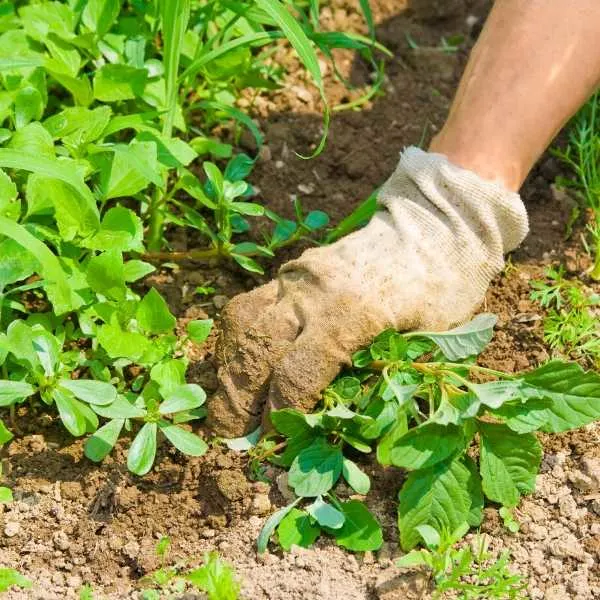
If you’re excited about the thought of growing your own vegetables – you should be! This is also where you need to use that enthusiasm to keep your garden at its healthiest, too.
At least once a week head out to your garden area and remove any unwanted leaves or debris.
This will keep the soil clear of other root systems that can eventually start to have a negative impact on your vegetable seeds and plants.
And last, but not least – be patient. There might be some days when you feel like you’re vegetables aren’t growing as fast as you hoped, but don’t fret…this takes time!
Just keep giving them love and taking care of them and before you realize it, you’ll have a vegetable garden so full of delicious and healthy food options that you’re going to be hooked and ready to plant again.
Do you have any other tips for vegetable gardening for beginners?
